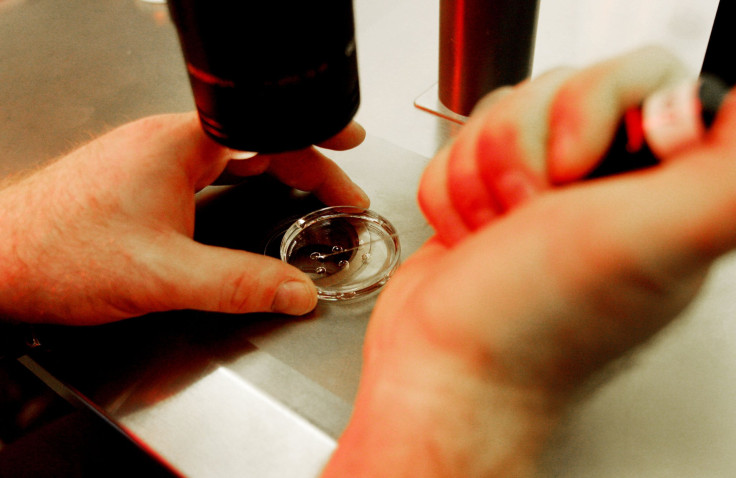Human Embryo Gene Modification 'Essential' For Research, Expert Group Says

It is “essential” to allow genetic modification of human embryos as the research can provide much needed answers to several important scientific questions, the Hinxton Group, an international group of scientists and policy experts, said, in a statement released Thursday. The statement comes in the wake of a gene modifying experiment recently conducted by Chinese scientists, which triggered a debate over the ethics of genetic therapies.
“We believe that while this technology has tremendous value to basic research and enormous potential for somatic clinical uses, it is not sufficiently developed to consider human genome editing for clinical reproductive purposes at this time,” the group said, in the statement. However, it also added that, in the future, it might be “morally acceptable” to use the technology in human reproduction.
“International and regional debate will be required to assess and make decisions about the ethical acceptability/permissibility of different potential uses of human genome editing for clinical reproductive purposes, even once standards for safety, efficacy, and robust governance have been met,” the group added, in the statement.
Recent advances in genetic engineering have allowed scientists to precisely alter genes within cells, opening the doors to stem cell and gene therapies. Moreover, in April, a team of Chinese scientists showed -- through a partially successful experiment -- that errors in the DNA that cause beta-thalassaemia, a life-threatening blood disorder, could be corrected through gene modification in early stage embryos.
However, the results of the experiment, published in the journal Protein and Cell, intensified debate over the ethics and morality of the process, with opponents calling it a move toward production of a Brave New World-esque “designer babies.”
“The concept of altering the human germline in embryos for clinical purposes has been debated over many years from many different perspectives, and has been viewed almost universally as a line that should not be crossed,” Francis Collins, director of the U.S. National Institutes of Health, which has refused to fund any gene editing of embryos, said, in a statement earlier this year.
However, Debra Mathews, assistant director of science programs at the Johns Hopkins Berman Institute of Bioethics and a member of the Hinxton Group, said, in the statement, that despite “controversy and deep moral disagreement” over the issue, the solution was “not to stop all discussion, debate and research, but rather to engage with the public, policymakers and the broader scientific community.”
© Copyright IBTimes 2024. All rights reserved.






















